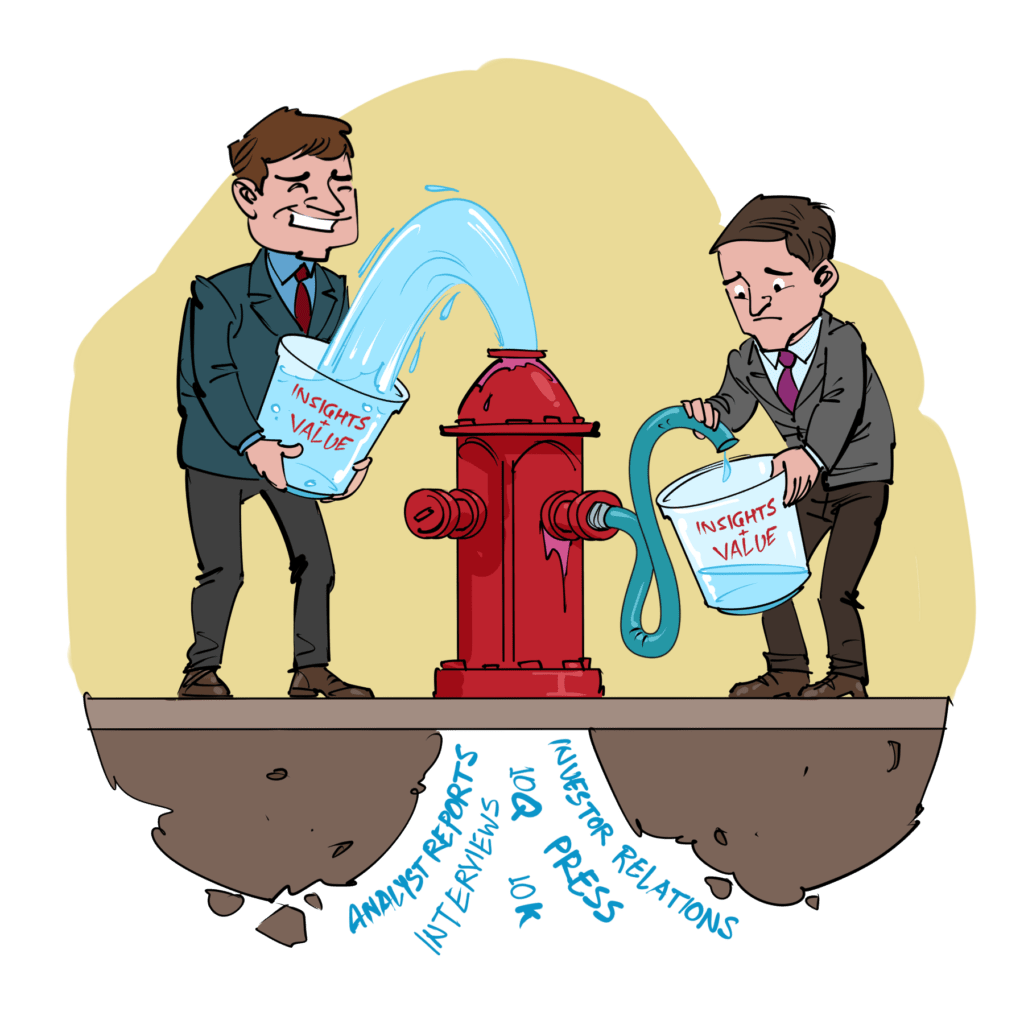In this post I will tell you why some enterprise sales professionals earn a magnitude more than their peers in absolute terms and in win rate percentages.
You will make outsized returns in enterprise sales as soon as you realize that efficient market theory/hypothesis (EMH) doesn’t apply in your context [Expand below if that is gobbledy gook to you]
The EMH theory is a mainstay of modern capital markets and to save you the two years of post-grad finance, it basically states that the true value of a share is reflected in its price because all publicly available information is priced into the stock at all times. Simply put, the difference between what an investor gets on a stock (return) and a benchmark index, is called Alpha (α). IE A high Alpha means that you are getting more returns on the stock than you should (Which is why insider trading is so lucrative).

Every sales organization analyzes the win rate and average deal size to determine what should be expected, which is the basis for setting quotas and territory. A little discussed fact is that there are a small number of enterprise sales professionals who have a very ‘high Alpha’ in that given an equivalent territory, they consistently beat the averages and earn multiples of their on target earnings.
It isn’t because they are exponentially better at the sales process
What I have observed is that these High Alpha sales professionals aren’t uniquely gifted in the way that they interact with prospective customer accounts – It is in fact all down to the way that they prepare for the interactions with the accounts. They create bigger visions, higher impact outcomes and ensure that everything they propose is attached to the executive agenda.
They do it with asymmetrical information access (and ability to use it)
If you want to outflank your competition through changing the criteria of a deal, to shape an RFP or simply to create a deal out of thin air, then follow the leaders by spending the hours (many) that are required to fully analyze an account to understand the executive agenda (and who will care about the ROI you can deliver with your solution). Today this is is supported by the use of tools like https://www.finlistics.com/analytics that dramatically accelerate your understanding of an account. The use of this sort of tool or ABM based research services is not widespread, which means that there is a high alpha for those who use them.
Data is not enough: The second part of this equation is having a sales professional who can interpret the insights and use them within their context to craft a value proposition and account plan that will deliver the desired result. For those of you who have done the GMAT you may recognize two critical capabilities of the enterprise sales professional:
1. Reading comprehension: Your ability to understand words and statements, understand logical relationships between significant points, draw inferences, and follow the development of quantitative concepts.
This is how you build a good account attack plan.
2. Critical Reasoning: Your ability to make arguments, evaluate arguments, and formulate or evaluate a plan of action.
This is how you build a proposal.
So, in an ideal world, you will have the following resources/processes in place:
- An account research resource
- A proposal management team
- A bid strategy brains trust
Now, for those of you who don’t, we can help with how you can still win without all the resources – The key to getting outsized returns (unanticipated Alpha) is knowing what matters and what doesn’t. My proudest deal was for a telco where we had myself, a sales engineer and a services specialist, up against an Oracle bid team of 17… If you want to learn the way to do this for yourself, either as a Sales Manager, Account Executive or as a Sales Enablement professional, come and join us for a SaaSy ‘Level-up’ course:



